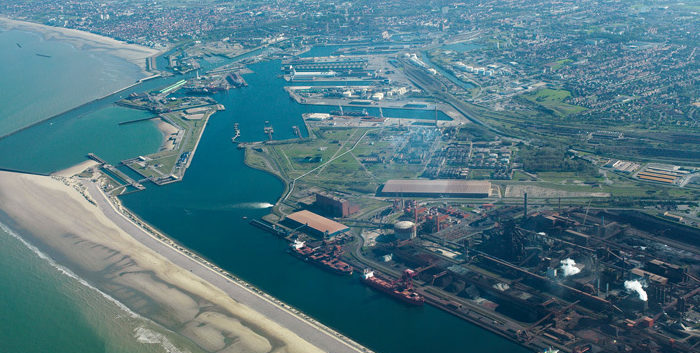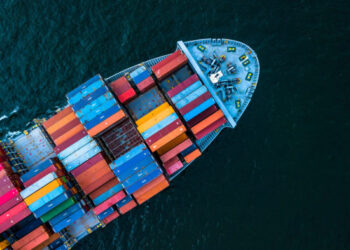According to Port of Dunkirk officials, 2018’s overall throughput was increased by 3% year-on-year from 50.2 million tonnes to 51.6 million tonnes. In the meantime, officials predict that 2019 will be a ‘good year’, as stated in a press conference that took place at Lille, on December 10.
Specifically, although the in cross-Channel ro-ro volumes experienced a decrease by 4%, to 15.6 million tonnes, reflecting a pre-Brexti traffic, the port’s overall results were not affected.
Additionally, container traffic was 13% ahead, reaching a record of 422.000 TEUs, resulting to an extension to the Flanders Quay container terminal due to open in Q1.
[smlsubform prepend=”GET THE SAFETY4SEA IN YOUR INBOX!” showname=false emailtxt=”” emailholder=”Enter your email address” showsubmit=true submittxt=”Submit” jsthanks=false thankyou=”Thank you for subscribing to our mailing list”]
Also, solid bulk was increased by 5%, reaching the 25.91 million tonnes. That includes a record ore volumes, more than 15 million tonnes.
Moreover, liquid bulk experienced an increase by 8%, reaching the 5.4 million tonnes. This resulted by the build-up in LNG traffic because of Europe’s second largest LNG terminal that had opened two years ago.
According to Stéphane Raison, CEO, the increase highlights the multipurpose idea of the port. The latter is moving forward supporting eco-friendly issues, aspiring to introduce LNG bunkering as a marine fuel and Europe’s first shore-power facility for containerships at the end of 2019.
Raison continued stating that the possibility of Brexit will less affect the Port of Dunkirk, in comparison to port of Calais, because of good border inspections.
Concluding, Stéphane Raison stated that the port will carry out
the necessary work so that Brexit has no impact on the flow of goods at the level of the port.






























































